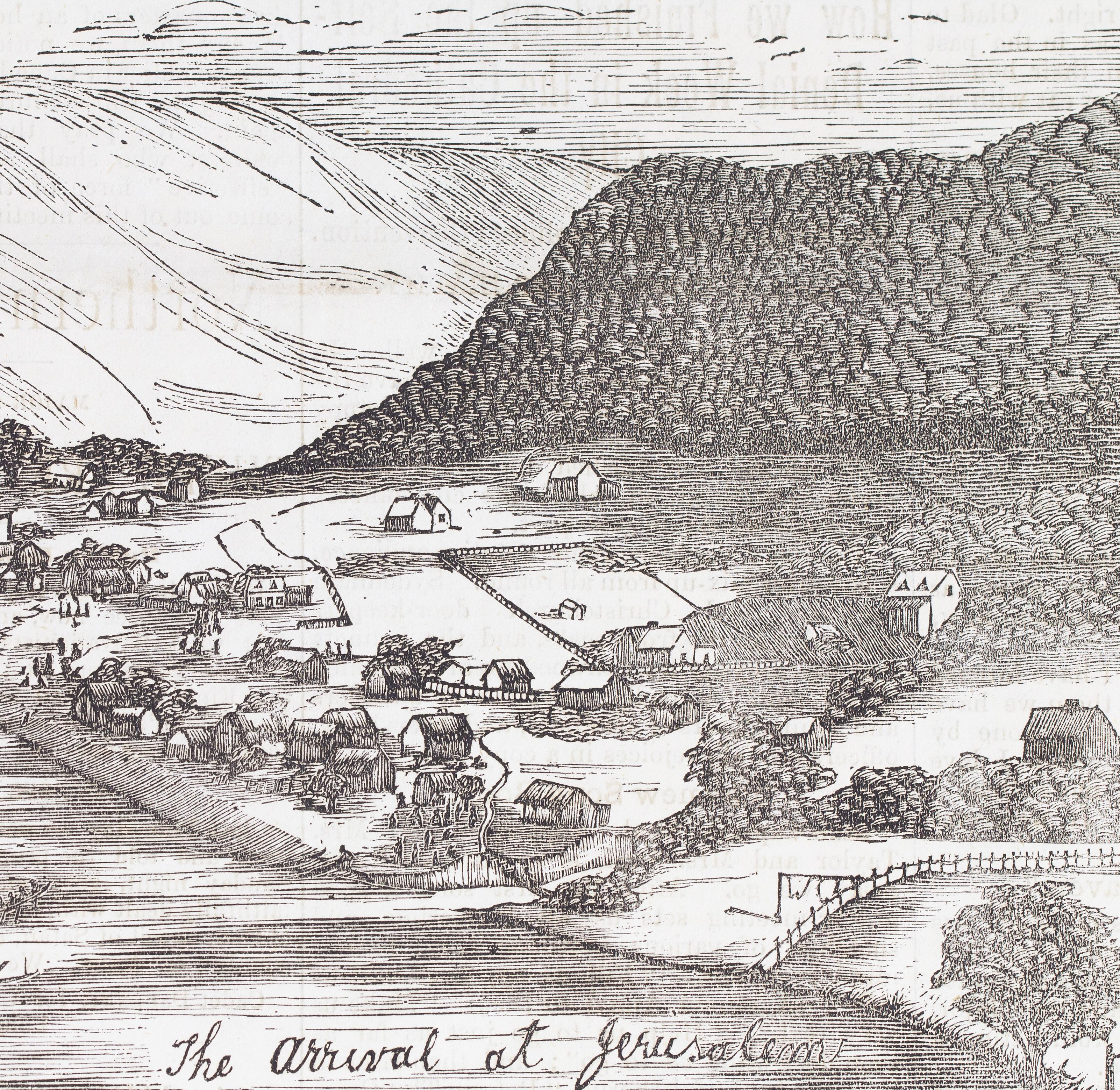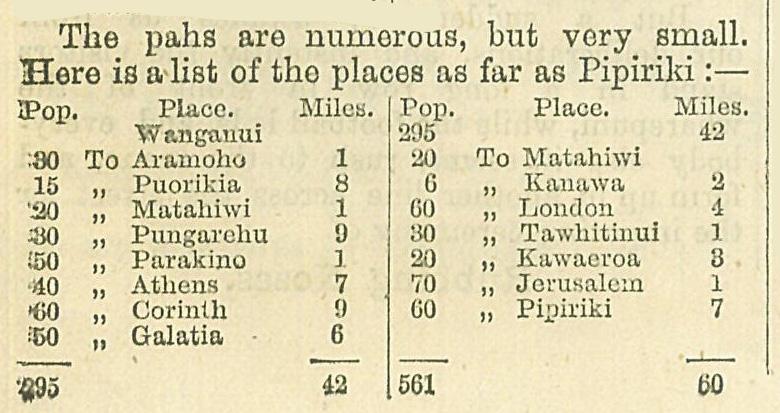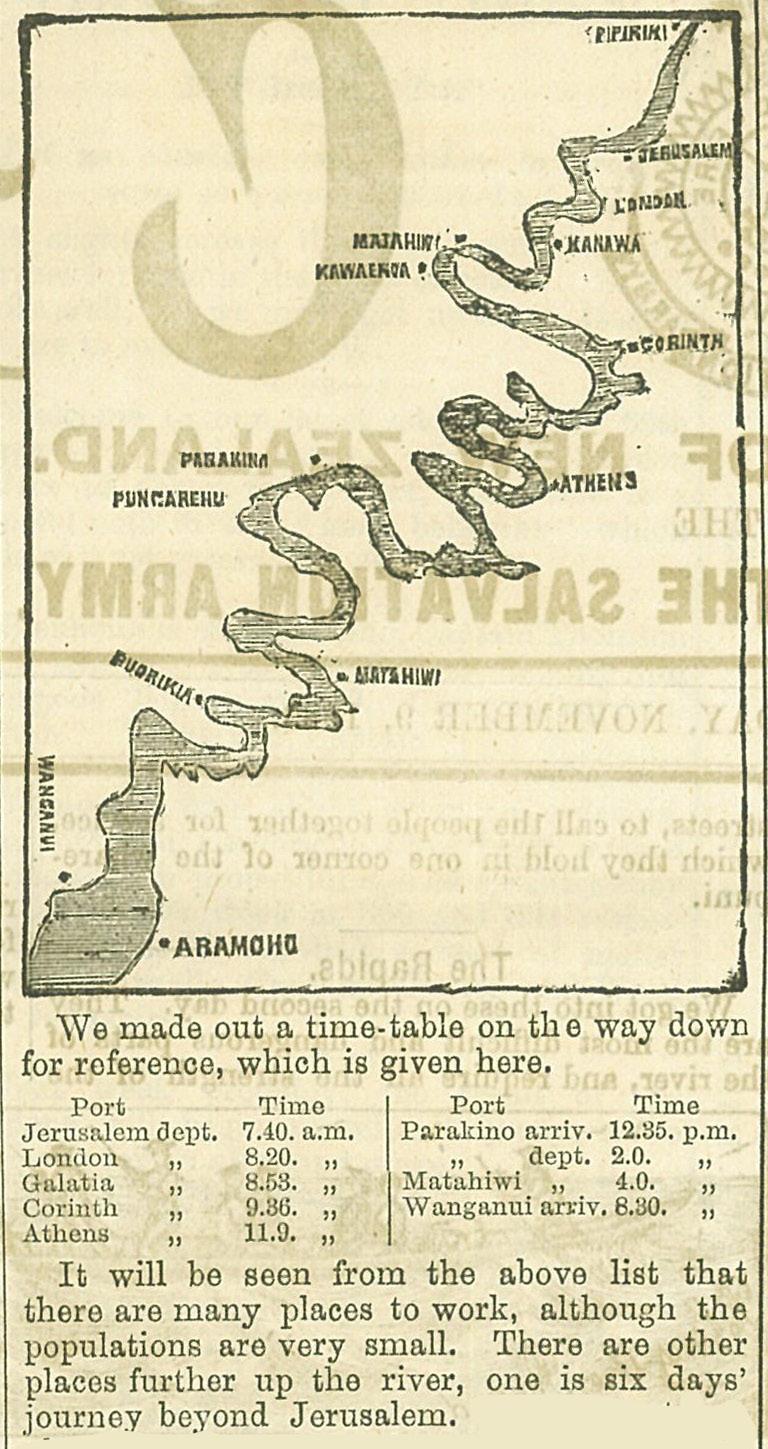
3 minute read
The War Cry | 9 November 1889
DAY TWO | Athens | Piripe's Testimony at the Meeting at Parakino | Corinth
Colonel Taylor's account continued from the previous week's recollections and his report of day two's travels, again made the front cover of the War Cry and continued onto page 2.
Atene (Athens) was reached at 1 pm on the second day and the party was met with a hospitable welcome. A lunch of potatoes and whitebait was provided in the wharepuni, where later that evening a meeting was held prior to sleep.
In the next paragraph Colonel Taylor recounted the events of the first meeting held in Parakino on the first night of their travels. He recorded that Holdaway with his concertina led the singing in Te Reo with approximately 40 people sitting on the floor of the wharepuni.
Piripe's testimony, one of several given that first night of the journey, was featured in the article. "Good evening to all my relations. I was a bad man, drinking, smoking, I have given up all these things. My soul's saved. My heart is washed in the blood of Jesus. Now I am a soldier to carry out God's laws. His laws are not burdensome. The Salvation Army will be victorious in winning the world for God." After a solid time of testimonies, the Salvation Army waka visitors were introduced and "spoke words of cheer and encouragement to our Maori comrades."
The wharepuni on the trip were the site for all meetings and Colonel Taylor noted that the one at Koriniti (Corinth) was 60 feet long and 25 feet wide. He commented that, " There were several of Te Kooti's followers in this pah, led on by one of his Staff. They have service every morning and evening...and lasts for about fifteen minutes.. The leader rings a bell in the streets, to call the people together for service."
The Rapids
The rapids were encountered for the first time after the waka left Atene. With a reputation for being difficult and dangerous and knowing that Māori called them, 'Kaiwaka', meaning eat the waka, and 'Whakamataku', frightened, it is no wonder the party were rather apprehensive at the outset of this journey. When they came down the rapid, using poles rather than oars, as the water was shallow, the waka struck sand, "... we had scarcely recovered from the shock when one remarked, 'I thought we were going over that time'... It was very interesting to watch the movement of the men, here lifting up their poles in the air, throwing them in the water and then leaning upon them with all their might. The Te Kai Urungi, or steersman shouting out 'akina', which means push it along, or 'whakawhina', which means twist it along. And sometimes breaking out into English with 'Altogether!'. It gave one a rather dizzy feeling, to be surrounded by angry waters, which every now and then splashed into the canoe and rushed past you with great speed... above you the beautiful sky is rapidly passing in another direction."
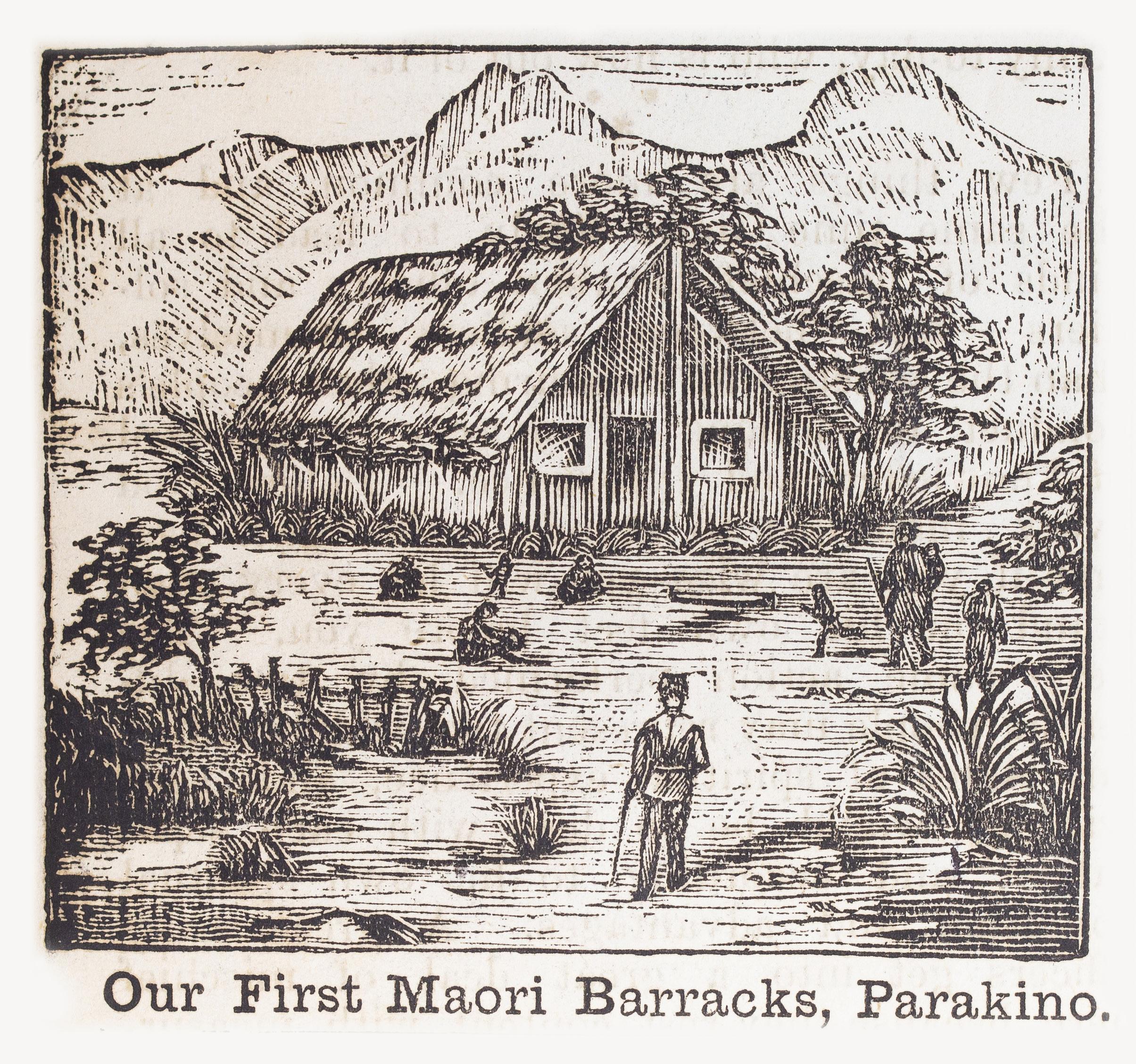
A hearty welcome was received at Jerusalem on the afternoon of the third day. Tamatea Aurunui, a chief of Ngatihau-nui-a-Paparangi, stood on the river bank holding a sword with a group of Salvationists shouting, singing and moving to the tune.
As they arrived, a number of Māori on the waka began to openly grieve the death of a local chief, who had died two months earlier. "...this, being the first time these Maoris had visited the pah since his decease...we had no idea of this going to take place, but here they stand, weeping and mourning...who have been bright and cheerful...now moved to tears... It is their custom when a man dies, for all the people in the pah, first to hold a tangi and mourn for him, and then they send the news to all the pahs round, inviting them to come for the same purpose... When the tangi is held, the visitors stand in a row facing the people of the pah, the women squatting on the ground in front of the men, and all mourn and cry."
After greetings had occurred, they all proceeded to the wharepuni for more speeches of welcome. Colonel Taylor noted details of the welcome where locals as they spoke walked up and down, one even with spear in hand who ran and jumped and shouted his words of welcome, "Haeremai, Haeremai, Haeremai."
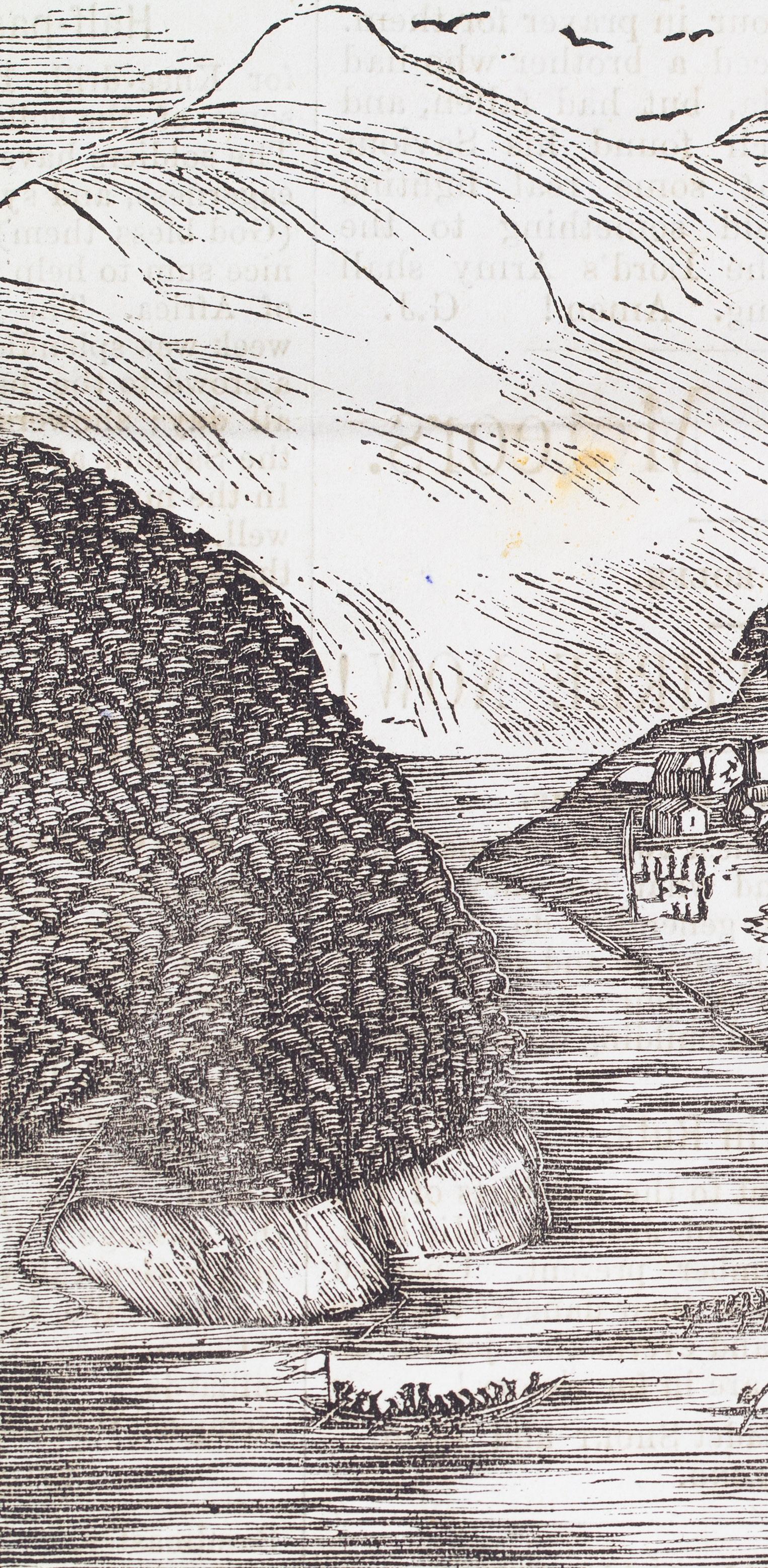
Taylor described the hongi ceremony, "...each person greets another in their turn, giving at the time a sympathetic moan." The plentiful kai served in a processional way by local women was appreciated by the guests.
The Colonel observed how the variety of house building materials, the clothing worn and outdoor games played by the children, reflected a mix of two cultures.
